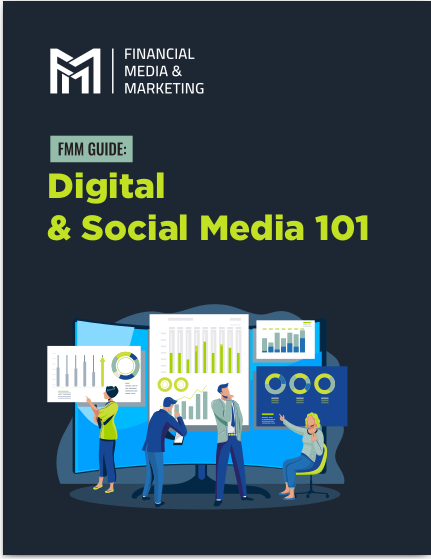Key Takeaways
-
Building a trusted reputation is crucial for personal and professional success, both online and offline.
-
Implementing practical steps to establish authority, credibility, and trust will set you apart in any industry.
Why Reputation is the Currency of Success
Your reputation is your most valuable asset. Whether you’re building a business, growing your career, or simply networking, how others perceive you can open doors or slam them shut. It’s not just about what you know or what you’ve achieved—it’s about how much people trust you.
Online and offline, your reputation forms the foundation of relationships. And relationships? They’re the secret ingredient to sustained success. By investing time and effort in how you’re perceived, you’re essentially shaping the trajectory of your opportunities and interactions.
Think of your reputation as an invisible thread that connects you to the world. Each action, word, and decision weaves into a story—a story others rely on to decide whether they’d like to work with you, trust you, or recommend you. In this way, it’s not just a currency; it’s the very fabric of your professional and personal identity.
Set the Stage with Authenticity
At the heart of a strong reputation lies authenticity. People are quick to spot insincerity, and trust is hard to regain once it’s lost. Focus on showing up as your true self. Share your values and what drives you—but don’t overdo it. Authenticity isn’t about oversharing; it’s about being genuine.
Being authentic isn’t just a buzzword; it’s the foundation of meaningful connections. When people feel they’re engaging with the real you, it paves the way for stronger relationships built on mutual understanding and trust. Authenticity demands vulnerability, but the rewards far outweigh the risks.
Action Steps:
-
Audit your online presence. Does your social media reflect who you really are? Delete posts that feel inauthentic or misaligned with your personal brand.
-
Identify three core values that define your approach and weave them into your communications. Make sure these values resonate with your audience and reflect who you aspire to be.
-
Stay consistent across platforms—authenticity means reliability too. When people encounter a consistent message, it solidifies their perception of your credibility.
Build Authority Through Expertise
Being trusted often starts with being seen as an expert. Establishing yourself as a go-to person in your field requires consistent effort but is highly rewarding. People listen to those who know their stuff.
However, expertise isn’t just about knowing—it’s about demonstrating. Share your knowledge in ways that make it accessible and relatable to your audience. Whether through writing, speaking, or mentoring, showcasing your understanding in practical, actionable terms is key.
How to Position Yourself as an Expert:
-
Share Your Knowledge: Post articles, videos, or insights regularly. Even short tips can leave a lasting impression. Focus on making your expertise valuable to your audience.
-
Engage in Conversations: Join discussions in forums or social media groups. Provide solutions rather than self-promotions. Position yourself as a helpful resource rather than a self-serving promoter.
-
Collaborate With Others: Partnering with other professionals boosts your credibility. Joint ventures, webinars, or co-authored content can amplify your reputation as someone knowledgeable and respected in your field.
Stay Transparent—Even When It’s Hard
Transparency breeds trust. In both your professional and personal dealings, being open about your intentions and actions shows integrity. Even if things don’t go perfectly, transparency can turn potential setbacks into opportunities to demonstrate accountability.
Being transparent doesn’t mean sharing everything. It’s about striking a balance between openness and professionalism. Thoughtfully choosing what to disclose and how to communicate challenges can show maturity and dependability.
Tips for Practicing Transparency:
-
Communicate openly about challenges and how you’re addressing them. Avoid vague language; specificity builds confidence.
-
Avoid over-promising—be realistic about what you can deliver. Overcommitting is a fast track to losing trust.
-
Admit mistakes promptly and outline your plan to fix them. Mistakes aren’t the end of your reputation; how you respond to them matters more.
Invest in Communication Skills
Great communicators build great reputations. Being approachable and clear in your messaging fosters positive interactions. Effective communication is about listening as much as speaking.
Strong communication ensures that your message is not only heard but understood. People remember how you make them feel—and clear, empathetic communication fosters positive feelings and strong impressions.
What to Focus On:
-
Active Listening: Show genuine interest in what others are saying. Make a habit of repeating back key points to ensure understanding.
-
Empathy: Understand and acknowledge others’ perspectives. Build a reputation for being someone who truly gets others.
-
Clarity: Avoid jargon or overcomplicated explanations. Simplicity often signals expertise.
Curate Your Online Presence Thoughtfully
Your digital footprint matters more than ever. Online impressions often precede face-to-face meetings. Taking control of how you appear online is non-negotiable.
Your online presence is often the first interaction people have with you—and first impressions count. A poorly managed profile or conflicting messages can diminish your reputation before you’ve even had a chance to engage.
Steps to Polish Your Digital Presence:
-
Audit Regularly: Search for your name and see what comes up. Adjust as needed. Consider setting alerts for mentions of your name online.
-
Update Profiles: Ensure your profiles on LinkedIn, personal websites, and other platforms are up-to-date. Keep them professional but approachable.
-
Be Selective: Share content that reflects your expertise, interests, and values. Delete posts that no longer align with the reputation you’re building.
Build Real Connections
Strong reputations aren’t just about being visible—they’re about being remembered for the right reasons. Relationships built on mutual respect and value-sharing create a network that naturally amplifies your reputation.
Real connections go beyond superficial exchanges. They’re about investing time and energy into relationships that enrich both parties. When you focus on adding value to others, your reputation grows organically.
How to Nurture Genuine Connections:
-
Attend industry events or local meetups to connect offline. Make it a point to engage meaningfully, not just hand out business cards.
-
Follow up with people you meet; small gestures like a quick email can go a long way. Mention something specific from your conversation to show you were genuinely listening.
-
Use social media to maintain and deepen professional relationships. Share others’ content, comment thoughtfully, and celebrate their successes.
Leverage Testimonials and Reviews
Social proof is powerful. Positive feedback from others bolsters your credibility and creates a ripple effect of trust.
Beyond testimonials, consider endorsements or mentions on social media. They’re modern-day word-of-mouth and can carry significant weight. Ensure that your reviews and testimonials reflect your most impressive work.
Where to Start:
-
Request testimonials from clients, colleagues, or collaborators. Be specific about what aspects of your work you’d like highlighted.
-
Feature these testimonials on your website, profiles, or presentations. Place them where they’ll have the greatest impact.
-
Respond to reviews, even negative ones, in a professional and constructive manner. A thoughtful response can sometimes turn critics into advocates.
Handle Criticism with Grace
No matter how carefully you build your reputation, criticism is inevitable. How you handle it can either strengthen or damage your image.
Criticism is an opportunity in disguise. Managed well, it can showcase your professionalism and growth mindset, demonstrating that you’re committed to continuous improvement.
The Right Approach:
-
Listen without getting defensive. Sometimes, critics just want to feel heard.
-
Acknowledge valid points and show willingness to improve. Showing humility can turn a tense situation into a constructive dialogue.
-
Thank critics for their feedback when appropriate, as it shows maturity. Even negative feedback can be a gift.
Keep Learning and Evolving
A trusted reputation isn’t static. Industries change, people grow, and new opportunities emerge. Staying relevant requires continuous learning and adapting.
Staying stagnant is a sure way to lose relevance. By committing to lifelong learning, you show that you’re not just competent but forward-thinking.
Ideas for Ongoing Growth:
-
Take professional development courses. Certifications can also signal your commitment to excellence.
-
Stay updated on trends and innovations in your field. Regularly consume industry-related content.
-
Seek feedback regularly to identify areas for improvement. Use it to refine your skills and broaden your expertise.
Align Actions with Promises
Consistency between what you say and what you do builds trust over time. If you commit to something, follow through.
Unfulfilled promises can quickly erode even the strongest reputation. By aligning your actions with your words, you establish yourself as reliable and dependable.
Practical Tips:
-
Underpromise and overdeliver whenever possible. Exceeding expectations delights and impresses.
-
Track your commitments with tools like task managers or calendars. Keep accountability top of mind.
-
Set reminders to check in with those who rely on you. Regular follow-ups reinforce trust.
Why Offline Efforts Still Matter
In a world dominated by digital connections, face-to-face interactions have taken on a new level of importance. Building your reputation offline complements your online efforts.
Offline connections add depth and authenticity to your relationships. They’re an opportunity to showcase qualities that don’t always translate digitally, like warmth, charisma, or thoughtfulness.
Ways to Shine Offline:
-
Volunteer for community projects or professional associations. It’s a great way to give back while building goodwill.
-
Host workshops or attend speaking engagements. Position yourself as a knowledgeable and approachable leader.
-
Practice small acts of kindness that reflect your values. They leave lasting impressions.
How Reputation Fuels Opportunity
When people trust you, they’re more likely to recommend you to others, seek your advice, or collaborate with you. Your reputation essentially works as a magnet, attracting the kind of opportunities you’ve worked to earn.
Where Your Efforts Lead
Ultimately, building a trusted reputation is about creating a legacy of reliability, expertise, and integrity. It’s an investment that pays off in professional opportunities, personal growth, and meaningful connections.










